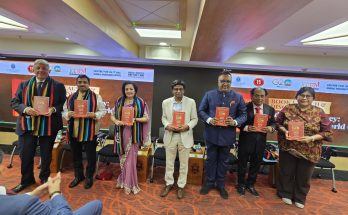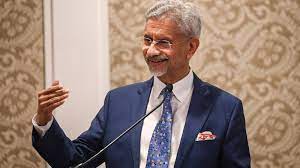In a world that is vulnerable to fanatic passions and bigots, India is celebrating the spirit of sufism – a unique syncretic culture of love and devotion that cuts across all religious orthodoxies and national boundaries. The fakirs of Zikr-e-Rifayi from Hyderabad, the Siddis of Gujarat, the Pinana brothers group from Spain and Otava Yo, a folk group from Russia, are just some of the exalted musicians who are performing in India, and creating soul-uplifting music that inspires the heart to reach for the infinite.
It is only befitting for a country that has embraced the sufi culture for centuries to continue celebrating this language of the heart and deep—down utterance of the spirit. Songs, dances, international festivals year after year are an eloquent reminder that the sufi culture is an intrinsic part of India. Currently, the Indian capital New Delhi is hosting a six-week long festival to honour Amir Khusrau, the 14th century sufi mystic, poet and spiritual disciple of Nizamuddin Auliya, a sufi saint of the Chisti order in the Indian subcontinent. Auliya himself was a disciple of another great sufi saint Baba Farid. The poems of Bulle Shah, Meerabai and Kabi have lost none of their spiritual radiance, and continue to inspire rapturous devotion.
The celebration is touted as being unique – for the first time an effort on this scale has been made to illuminate the spirit of the prolific poet through a slew of initiatives such as musical soirees, seminars, film screenings, heritage walks and exhibitions. It is a concerted effort by the Agha Khan Trust for Culture, which is hosting the festival along with the support of Ford Foundation, to bring alive a culture that once thrived in Delhi and had a resonance in distant places, drawing people to Khusrau and his poetry from various parts of the Indian subcontinent. Keeping with that spirit, this event will see performances by Pakistani sufi musicians – proving once again that music knows no boundaries and can heal when nationalistic passions go astray.
It is not just Khusrau alone; a host of sufi saints across the country and over the centuries have touched people’s hearts to weave a rich legacy which underpins pluralism and secular ethos of India. It’s hard to figure out the extent of its influence on Indian culture, but it’s there, a heart and soul thing which one can feel if one digs deeper. The fakir and baul singers of West Bengal, for instance, believe in the equality of all human beings and oneness of God – similar to the tenets of sufism. The Nirgun singers from Bihar, too, talk of a formless God, universal love and brotherhood. It’s incredible, yet fascinating, how the sufi philosophy has permeated the socio-cultural fabric of India.
Nizamuddin Auliya and Khusrau were in the forefront to spread sufism across the Indian subcontinent. Being on the Silk Route helped sufism to spread to India, with 13th century sufi saint Khwaja Moinuddin Chisti first settling down in Ajmer. Today, centuries later, his dargah is an important pilgrimage centre. Just as sufism continues to thrive in India, many other countries in the world boast of a vibrant sufi culture. Fortunately, Indians get a glimpse of it – whirling dervishes, Azerbaijan Mugan, —- at various festivals that dot a year’s cultural calendar. A forthcoming festival, the 6th World Sufi Spirit Festival to be held in Jodhpur from February 22, will have artistes from Afghanistan, Egypt, Iran, Kazakhstan, Uzbekistan, Turkey and Pakistan. The burgeoning popularity of Sufism testifies to the hunger for the humanity for a glimpse of the divine in the here and the now.






